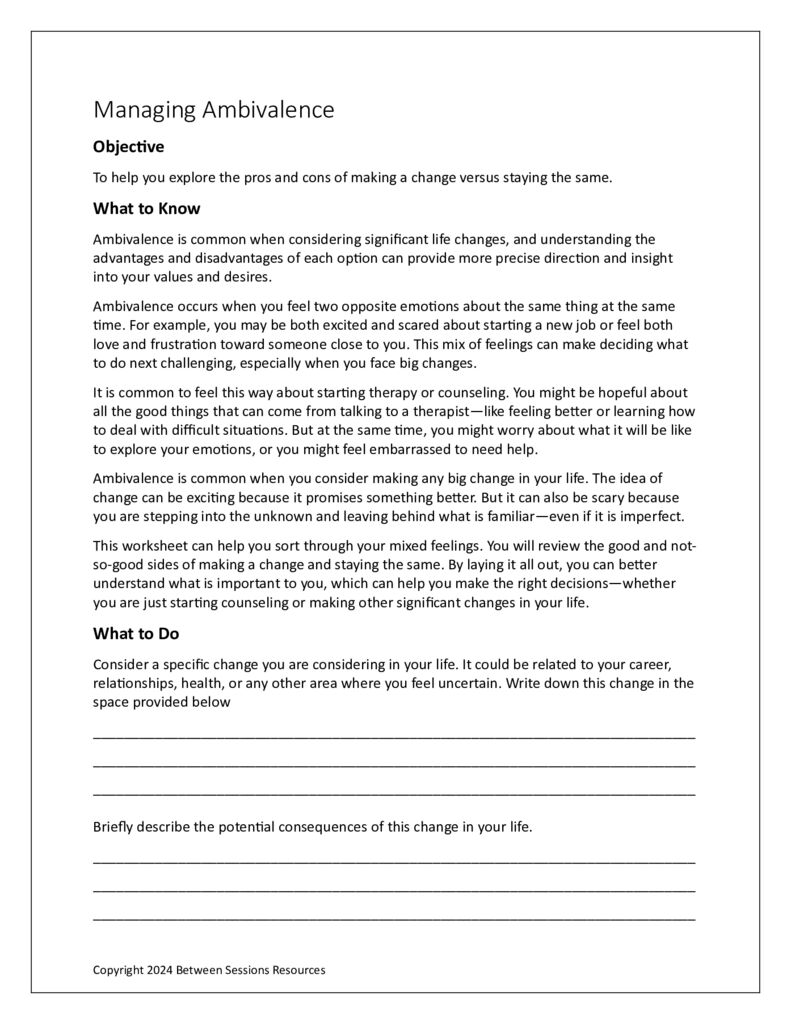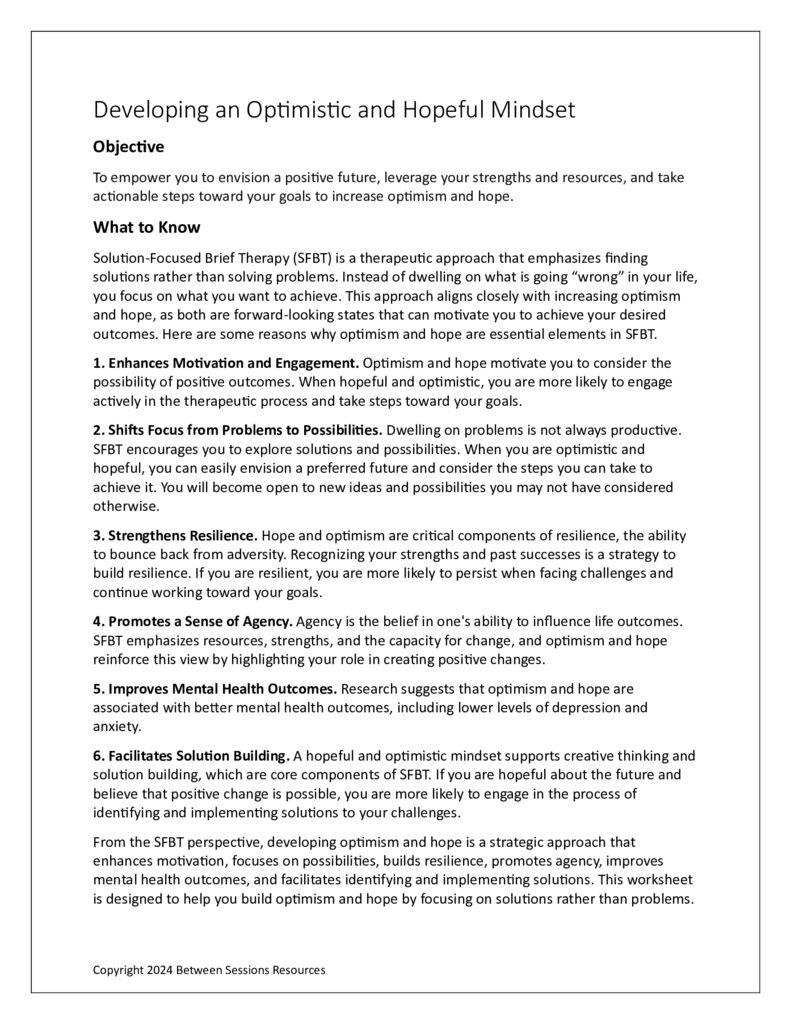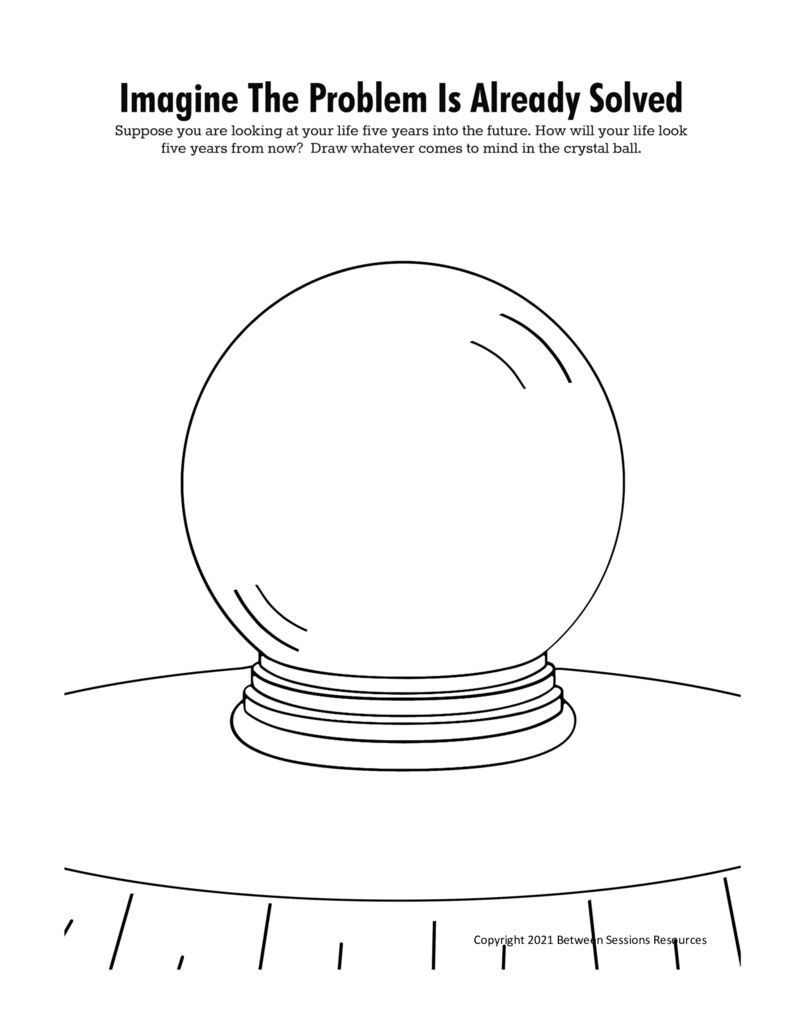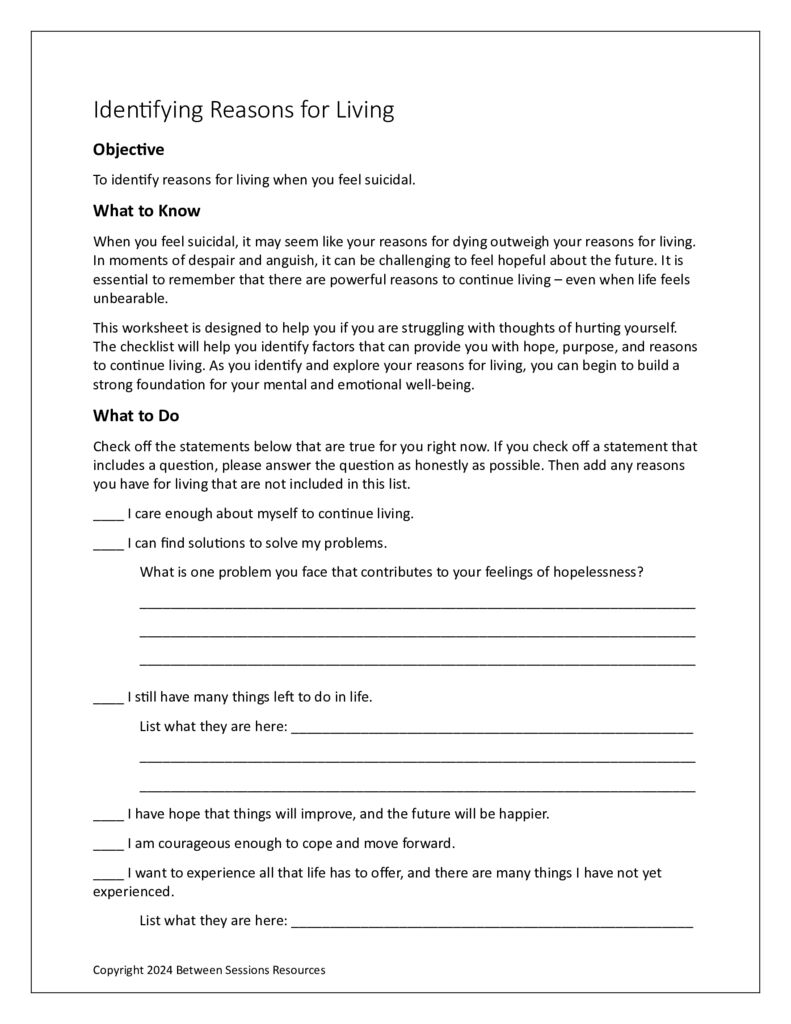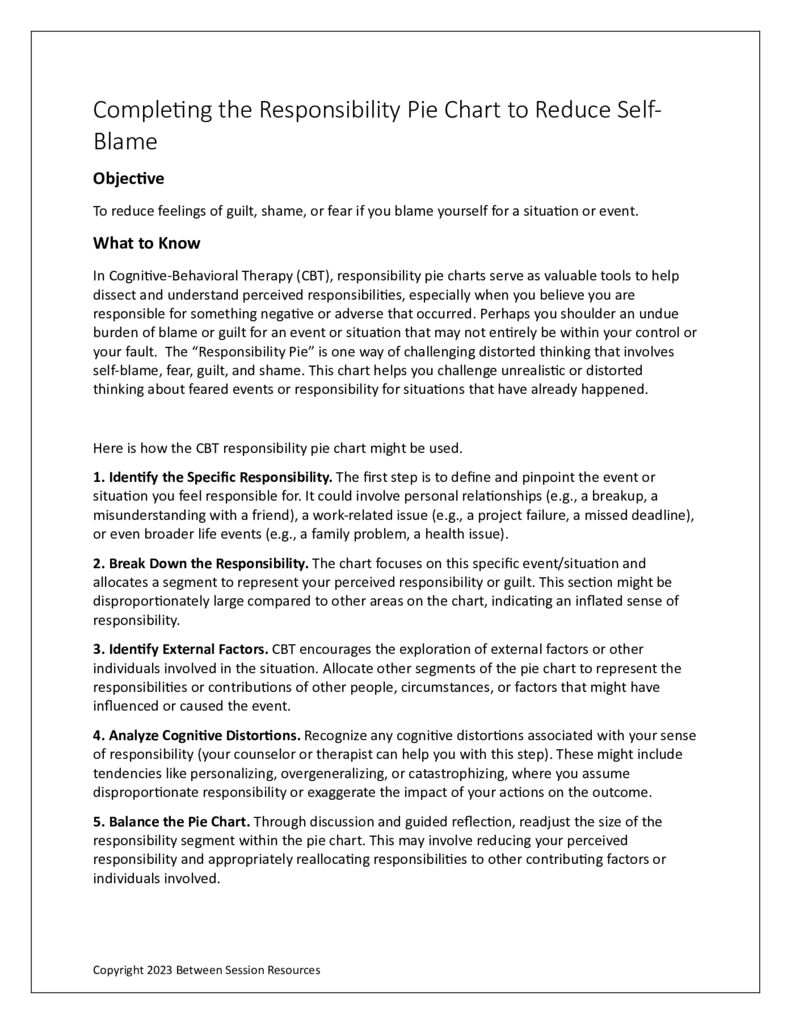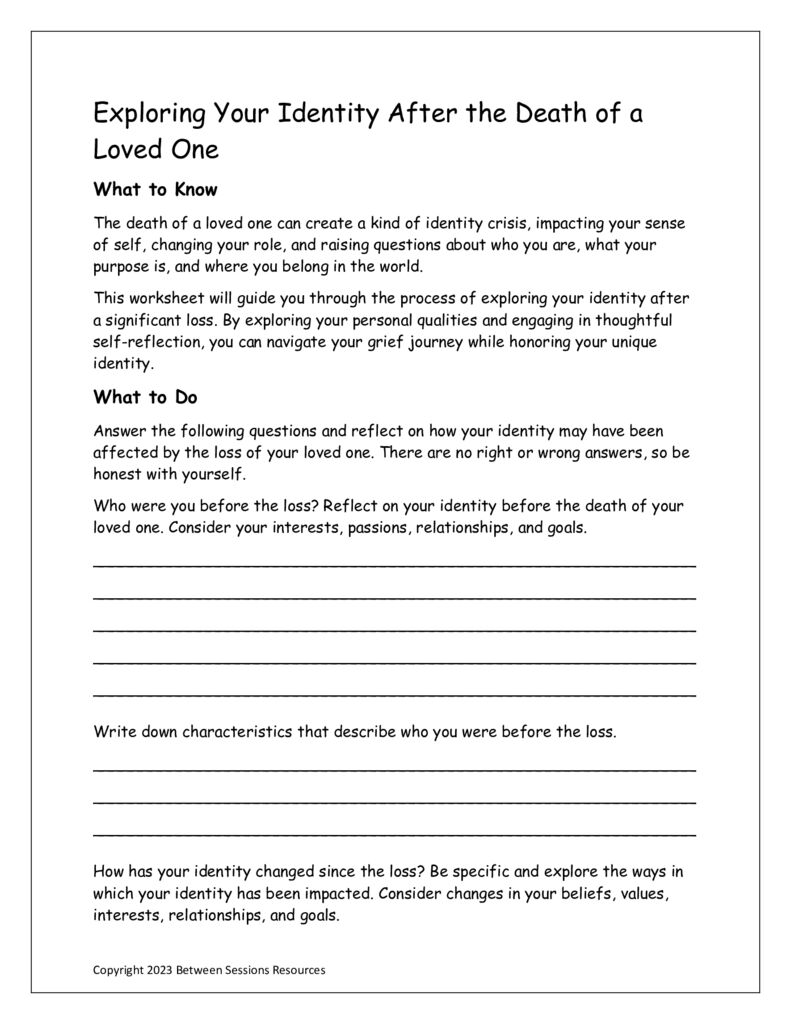This worksheet goes beyond the conventional wisdom of telling people to connect with others who are like them (bonding) and encourages them to also make social connections with people who are not like them (bridging). The worksheet focuses on helping people set goals to become more socially active and to take small steps to achieve those goals. (0724, depression, isolation, loneliness)
This worksheet is intended to help people manage their mental and emotional resources as part of a Wellness Plan. It helps them identify how to make “deposits” with self-care activities, positive relationships, and acquiring new psychological skills and to be aware of when they make “withdrawals” by overloading their lives with stress, accepting thoughts as true, or relying on self-defeating habits to cope with problems. (0724, wellness, stress, habits, lifestyle)
This worksheet suggests that people make a playlist to help them shift their mood if they are angry, depressed, anxious, or upset. It guides them to select a song that reflects their current feelings, and then several transition songs. The playlist ends with a song that could trigger a desired emotion. (0624, depression, music therapy, mood, emotional regulation)
This worksheet encourages people to explore how they deal with ambivalence in their lives thinking about the pros and cons and the consequences of making changes. It also helps people identify the barriers to change and consider how they can be overcome. (0424, depression, anxiety, relationships, decisions, problem-solving, CBT)
This approach to increasing optimism is based on Solution-Focused Brief Therapy (SFBT). The worksheet is designed to increase motivation, shift a person’s focus from problems to possibilities, stimulate creative thinking, and more. (0424, hope, depression, Solution Focused Therapy, agency)
The Miracle Question is a powerful tool used in Solution-Focused therapy to bypass limitations and obstacles. It involves imagining an ideal future where all your problems are solved and your goals are achieved. Then, you identify the steps to make this vision a reality. This worksheet introduces the concept of the Miracle Question as it pertains to personal growth, relationships, career, health, and well-being. (0324. solution-focused, SFBT)
This Solution-Focused therapy technique asks people to think in the future about what their lives will be like if their immediate problems were solved. (0324. SFBT, solutions, art therapy,)
This worksheet is designed to help people struggling with thoughts of hurting themselves. It includes a checklist that will help them identify factors that can provide them with hope, purpose, and reasons to continue living. The worksheet includes questions to help people explore their reasons for living and guide them toward building a strong foundation for their emotional well-being. (0124, suicide prevention, suicidal ideation)
In Cognitive-Behavioral Therapy (CBT), responsibility pie charts can serve as valuable tools to help dissect and understand perceived responsibilities, especially when people believe they are responsible for some serious problem or event. This technique asks people to identify and break down responsibility, identify external factors, analyze cognitive distortions, and develop specific coping strategies. (1123, CBT, cognitive restructuring, self-blame, depression)
This worksheet will guide people through the process of exploring their identity after a significant loss. By exploring their personal qualities and engaging in thoughtful self-reflection, people can navigate their grief journey while honoring their unique identity. (0723, grief, self-image, identify, loss, healing)




